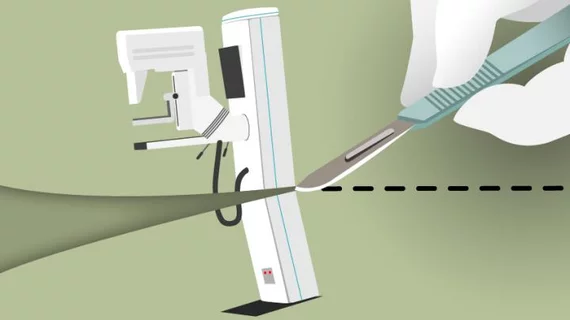Despite the best current recommendations advocating women avoid mammograms before elective breast surgery, a large number of women still undergo pre-surgical screening, reported authors of a study published in JAMA Surgery. The unnecessary imaging may drive up healthcare costs and lead to unneeded tests.
After looking through the records of more than 52,000 women (mean age of 43) evaluated for breast reduction between 2009 and 2015, the authors found nearly one-third of those younger than 40 underwent mammography prior to surgery.
Additionally, the study showed 30 percent of women ages 30 to 39 had mammograms before elective surgery—five times higher than that seen in other women their age, according to the study.
"Altering screening mammography for patients younger than 40 years in the setting of evaluation for breast surgery has a risk for subsequent tests and invasive procedures," said Erika D. Sears, MD, a plastic surgeon at Michigan Medicine in Ann Arbor, in a university release.
In fact, among the women in their 30s who underwent a mammogram before surgery, 14 percent later had an MRI, ultrasonography or a biopsy used for laboratory testing. Cancer was found in 0.5 percent of women.
Currently, no professional society recommends routine breast cancer screening until a women reaches 40 years old. And in 2014, the American Society of Plastic Surgeons stated that women choosing elective breast surgery shouldn’t receive additional screening unless there was a history of, or reason for concern.
“Given the inconvenience, costs, and patient anxiety associated with subsequent tests and procedures and the potential for further complications, policy and guidelines to promote awareness and shared decision making for patients are needed if screening recommendations are altered for young patients who present for elective breast surgery,” Sears and colleagues wrote in the study.

